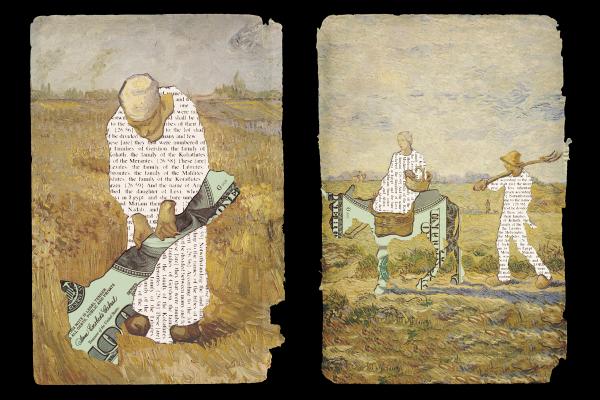IN A JUST ECONOMY, everyone who wants a job has one, and it pays a living wage, sufficient for workers and their families to thrive. Everyone’s material needs — for nutritious food, safe and secure housing, transportation, clothing, utilities, education, health care, and economic security — are met. Economists call this full employment in living wage jobs, and it is a goal of many justice advocates. It is also God’s vision for society.
Jesus told the disciples that he came so all may have abundant life (John 10:10). As Jesus showed, God’s vision encompasses more than abundant spiritual life. Jesus understood that God’s vision of abundance encompasses material needs as well as spiritual ones. Jesus healed broken bodies. He fed hungry people and encouraged others to do so as well. In God’s reign, everyone’s material needs are filled. But how does God envision this to happen?
The Old and New Testaments reveal a great deal about God’s intentions for the economy, the word we use to describe the way in which we use God-given natural resources — soil, rain, sun, fuels, minerals, trees, etc. — in combination with human effort and ingenuity (also given by God) to produce all our goods and services. We can gain important insights relevant to our economy today by examining the economic circumstances of the Israelites during three different biblical eras and then exploring what the biblical writers and Jesus taught about the economy and economic injustices during those periods.
Over the more than 10 centuries during which the biblical narrative was composed, the economic circumstances of the Israelites changed markedly and, in response, so did the economic instructions in the Bible. But, surprisingly, in each of the three eras, the instructions called for livelihoods for all that enabled thriving or, in our language today, full employment in living wage jobs.
In the Old Testament — the Hebrew Bible — the economic instructions are part of the laws found in Exodus, Leviticus, and Deuteronomy. Today, Christians often insufficiently value this body of law. Some of it seems strange to our modern ears. Other provisions fall far short of current standards for justice — for example, slavery and patriarchy were normalized then. Certainly some of our laws today will fall short of more enlightened future standards. But as we will see below, the law contains much timeless wisdom. To the Israelites, the law was a gift from God, a blessing, a guide to more joyful and fulfilling lives lived in right relationship with God. Psalm 23, one of the most beloved and well-known biblical psalms, tells of the comfort derived from God-the-Shepherd’s rod and staff, tools used to guide sheep in safe, life-giving paths. If we are open to it, we can gain important insights from the ancient laws.
Read the Full Article

